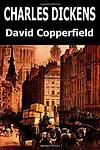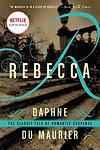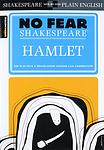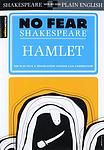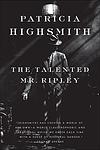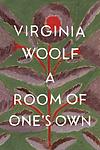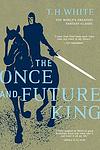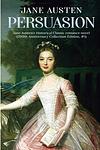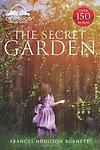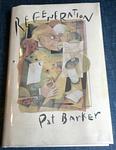The Greatest "Great Britain" Books of All Time
Click to learn how this list is calculated.
This list represents a comprehensive and trusted collection of the greatest books. Developed through a specialized algorithm, it brings together 284 'best of' book lists to form a definitive guide to the world's most acclaimed books. For those interested in how these books are chosen, additional details can be found on the rankings page.
Genres
The "Great Britain" category of books encompasses literature that is set in, or explores the history, culture, and society of England, Scotland, and Wales. This category includes works of fiction, non-fiction, and poetry that delve into the rich and complex history of the British Isles, from the Roman occupation to the present day. It also includes books that examine the unique customs, traditions, and way of life of the British people, as well as their contributions to art, science, and politics. Whether you are interested in the Tudor monarchy, the Industrial Revolution, or contemporary British society, the "Great Britain" category offers a wealth of fascinating and informative reading material.
Countries
Date Range
Reading Statistics
Click the button below to see how many of these books you've read!
Download
If you're interested in downloading this list as a CSV file for use in a spreadsheet application, you can easily do so by clicking the button below. Please note that to ensure a manageable file size and faster download, the CSV will include details for only the first 500 books.
Download-
1. Nineteen Eighty Four by George Orwell
Set in a dystopian future, the novel presents a society under the total control of a totalitarian regime, led by the omnipresent Big Brother. The protagonist, a low-ranking member of 'the Party', begins to question the regime and falls in love with a woman, an act of rebellion in a world where independent thought, dissent, and love are prohibited. The novel explores themes of surveillance, censorship, and the manipulation of truth.
-
2. Great Expectations by Charles Dickens
A young orphan boy, living with his cruel older sister and her kind blacksmith husband, has an encounter with an escaped convict that changes his life. Later, he becomes the protégé of a wealthy but reclusive woman and falls in love with her adopted daughter. He then learns that an anonymous benefactor has left him a fortune, leading him to believe that his benefactor is the reclusive woman and that she intends for him to marry her adopted daughter. He moves to London to become a gentleman, but his great expectations are ultimately shattered when he learns the true identity of his benefactor and the reality of his love interest.
-
3. David Copperfield by Charles Dickens
This novel follows the life of its titular protagonist from his childhood to maturity. Born to a young widow, David endures a difficult childhood when his mother remarries a harsh and abusive man. After his mother's death, he is sent to a boarding school before being forced into child labor. As he grows, David experiences hardship, love, and loss, all the while meeting a colorful array of characters. The novel is a journey of self-discovery and personal growth, showcasing the harsh realities of 19th-century England.
-
4. Rebecca by Daphne du Maurier
A young woman marries a wealthy widower and moves into his large English country house. She quickly realizes that the memory of her husband's first wife, Rebecca, haunts every corner of the estate. The housekeeper's obsessive devotion to Rebecca and the mysterious circumstances of her death continue to overshadow the second wife's attempts to make a happy life with her husband. As secrets about Rebecca's life and death are revealed, the new wife must grapple with her own identity and place within the household.
-
5. Candide by Voltaire
"Candide" is a satirical novel that follows the adventures of a young man, Candide, who is living a sheltered life in an Edenic paradise and being indoctrinated with Leibnizian optimism by his mentor. When he is expelled from the paradise for kissing a baron's daughter, he embarks on a journey around the world, witnessing the horrors of war, natural disasters, and human cruelty. Throughout his journey, Candide maintains his optimistic philosophy, despite the constant hardships he faces, ultimately concluding that one must cultivate their own garden, a metaphor for taking control of one's own destiny.
-
6. Hamlet by William Shakespeare
This classic play revolves around the young Prince of Denmark who is thrown into a state of emotional turmoil after his father's sudden death and his mother's quick remarriage to his uncle. The prince is visited by the ghost of his father who reveals that he was murdered by the uncle, prompting the prince to seek revenge. The narrative explores themes of madness, revenge, and moral corruption as the prince navigates the complex political and emotional landscape of the Danish court.
-
7. First Folio by William Shakespeare
This collection is a compilation of 36 plays by a renowned English playwright, published seven years after his death. It includes comedies, histories, and tragedies, some of which had never been published before. Notable works in the compilation include "Macbeth," "Julius Caesar," "Twelfth Night," "The Tempest," and "As You Like It." The collection is considered one of the most influential books ever published in the English language, as it preserved many of the playwright's works that might have otherwise been lost.
-
8. The Spy Who Came in From the Cold by John le Carré
This novel is a fascinating tale of espionage during the Cold War, centered around a British intelligence officer who is seemingly ready to end his spy career. However, he is given one last mission before his retirement: to bring down the head of East German Intelligence. As he navigates the dangerous world of spies and double agents, he is forced to confront his own past and the sacrifices he has made for his country. The story is a complex exploration of morality, loyalty, and the personal cost of political conflict.
-
9. The Talented Mr. Ripley by Patricia Highsmith
The Talented Mr. Ripley is a psychological thriller that follows the story of Tom Ripley, a young man struggling to make ends meet in New York City. When a wealthy shipbuilder mistakes Tom for a close friend of his son, Dickie Greenleaf, he offers him an all-expenses-paid trip to Italy to persuade his wayward son to return home. Instead, Tom becomes obsessed with the luxurious lifestyle of Dickie and his girlfriend, Marge, and goes to extreme lengths to make it his own, including identity theft and murder.
-
10. A Room of One's Own by Virginia Woolf
This book is an extended essay that explores the topic of women in fiction, and the societal and economic hindrances that prevent them from achieving their full potential. The author uses a fictional narrator and narrative to explore the many difficulties that women writers faced throughout history, including the lack of education available to them and the societal expectations that limited their opportunities. The central argument is that a woman must have money and a room of her own if she is to write fiction.
-
11. Lady Chatterley's Lover by D. H. Lawrence
"Lady Chatterley's Lover" is a controversial novel that explores themes of class, sexuality, and the human condition. The story revolves around a young, upper-class woman married to a paralyzed war veteran who, feeling emotionally and physically neglected, embarks on a passionate affair with the estate's gamekeeper. The narrative delves into the protagonist's sexual awakening and her struggle against societal norms, ultimately advocating for emotional honesty and physical intimacy as essential components of a fulfilling life.
-
12. Atonement by Ian McEwan
Atonement is a powerful novel that explores the consequences of a young girl's false accusation. The narrative follows the lives of three characters, the accuser, her older sister, and the sister's lover, who is wrongly accused. This false accusation irrevocably alters their lives, leading to the accused's imprisonment and eventual enlistment in World War II, while the sisters grapple with guilt, estrangement, and their own personal growth. The novel is a profound exploration of guilt, forgiveness, and the destructive power of misinterpretation.
-
13. The Once and Future King by T. H. White
This novel is a retelling of the Arthurian legend, from Arthur's childhood tutelage under the wizard Merlyn to his eventual death. The story follows Arthur's journey from a naive boy to a wise and just king, his establishment of the Round Table, his marriage to Guinevere, and his complex relationship with his illegitimate son, Mordred. The narrative explores themes of power, justice, war, and human nature, offering a nuanced and humanizing portrayal of a well-known mythical figure.
-
14. White Teeth by Zadie Smith
This novel follows the lives of two friends, a working-class Englishman and a Bangladeshi Muslim, living in London. The story explores the complex relationships between people of different races, cultures, and generations in modern Britain, with themes of identity, immigration, and the cultural and social changes that have shaped the country. The narrative is enriched by the characters' personal histories and the historical events that have shaped their lives.
-
15. The Life of Samuel Johnson by James Boswell
"The Life of Samuel Johnson" is a comprehensive biography that chronicles the life of one of the most prominent English literary figures of the 18th century. The book provides an in-depth account of Samuel Johnson's life, his literary works, and his significant contribution to English literature. It also offers a detailed portrait of his personality, his relationships, his struggles with depression and illness, and his views on a variety of subjects. The book is as much a biography of Johnson as it is a portrayal of 18th-century England.
-
16. Persuasion by Jane Austen
This classic novel revolves around the life of Anne Elliot, a woman of 27 who is unmarried and living with her vain, snobbish, and foolish family who are on the brink of financial ruin. Seven years prior, she had been persuaded to reject a marriage proposal from the man she loved, a poor but ambitious naval officer named Frederick Wentworth. When he returns from the war a wealthy and successful captain, old feelings are rekindled. The story follows Anne's journey towards self-realization and second chances at love amidst the complexities of her social class.
-
17. The Moonstone by Wilkie Collins
"The Moonstone" is a detective novel that revolves around a large, valuable yellow diamond that was stolen from an Indian temple and is now in England. The diamond is bequeathed to a young woman on her eighteenth birthday, but is stolen that same night. The novel follows the investigation of the theft, which is complicated by a series of confusing events and false leads. The resolution involves the unraveling of a tangled web of deception, crime, and colonial guilt.
-
18. The Old Wives' Tale by Arnold Bennett
This novel explores the lives of two sisters, Constance and Sophia Baines, who are brought up in a small town drapery shop in the mid-19th century. Constance remains in their hometown, marries and leads a relatively uneventful life, while Sophia elopes to Paris with a traveling salesman, living through the Siege of Paris and the Franco-Prussian War. The book contrasts the sisters' different experiences and how their choices shape their lives, ultimately reuniting them in their old age.
-
19. Ivanhoe by Walter Scott
Set in 12th-century England, the novel follows the story of Wilfred of Ivanhoe, a young Saxon knight, returning from the Crusades. He is disowned by his father for his allegiance to the Norman king Richard the Lionheart. The narrative encompasses themes of chivalry, rivalry, and the struggle between Saxons and Normans, while also highlighting the tension between Jews and Christians. The tale is known for its action-filled tournaments, sieges, and the character of Rebecca, a virtuous and strong Jewish woman.
-
20. A Vindication of the Rights of Woman by Mary Wollstonecraft
This influential work from the late 18th century argues passionately for the education and societal recognition of women. The author asserts that women are not naturally inferior to men, but appear to be only because they lack education. She suggests that both men and women should be treated as rational beings and imagines a social order founded on reason. The book is considered one of the earliest works of feminist philosophy.
-
21. Silas Marner by George Eliot
Silas Marner, a weaver, is wrongfully accused of theft and excommunicated from his community in Lantern Yard. He moves to the village of Raveloe, where he lives as a recluse, hoarding his money. After his money is stolen, he adopts a young girl named Eppie, who was abandoned near his home. Eppie's presence transforms Silas's life, and he becomes a cherished member of the community. The novel explores themes of betrayal, redemption, and the transformative power of love.
-
22. A Christmas Carol by Charles Dickens
This classic tale follows a miserly old man named Ebenezer Scrooge who despises Christmas and all forms of happiness. On Christmas Eve, he is visited by the ghost of his former business partner and three spirits representing Christmases Past, Present, and Yet to Come. These apparitions take him on a journey that forces him to confront his selfish ways, leading him to a transformation where he becomes a kinder and more generous person, embodying the true spirit of Christmas.
-
23. The Daughter of Time by Josephine Tey
A detective, laid up in the hospital, becomes fascinated with a portrait of Richard III, the historical figure accused of murdering his nephews to secure his throne. He decides to apply his investigative skills to delve into the mystery, using historical documents and records as his clues. As he pieces together the puzzle, he begins to question the accepted narrative of Richard as a villain, suggesting that this image was a fabrication by the Tudors to legitimize their own claim to the throne.
-
24. The Secret Garden by Frances Hodgson Burnett
A young, spoiled and unloved girl is sent to live with her reclusive uncle in a large, lonely house after the death of her parents. Through the discovery and cultivation of a hidden, neglected garden, she befriends a local boy and her sickly cousin, and the three children find healing and transformation through their friendship and the magic of the garden.
-
25. Regeneration by Pat Barker
"Regeneration" is a historical and anti-war novel set in a mental hospital during World War I. The narrative focuses on the experiences and interactions of a psychiatrist and his patients, most of whom are soldiers suffering from severe shell shock. The novel explores themes of masculinity, identity, and the psychological effects of war, while also critiquing the societal pressures and expectations that led many men to enlist and subsequently suffer from mental trauma.
Reading Statistics
Click the button below to see how many of these books you've read!
Download
If you're interested in downloading this list as a CSV file for use in a spreadsheet application, you can easily do so by clicking the button below. Please note that to ensure a manageable file size and faster download, the CSV will include details for only the first 500 books.
Download

